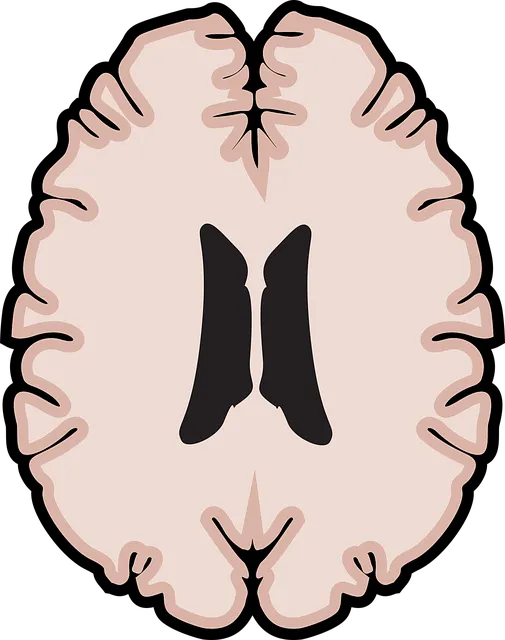Longmont Kaiser Permanente behavioral health services reviews highlight innovative approaches to mood regulation, integrating CBT, DBT, mindfulness meditation, and lifestyle adjustments for personalized care. These methods, backed by positive reviews, empower individuals to manage emotions through self-awareness journaling, culturally sensitive practices, stress reduction techniques, and mental health education. Key strategies include CBT for transforming negative thought patterns, mindfulness for inner calm, and holistic lifestyle changes for overall well-being.
“Mood regulation is a vital aspect of our overall well-being, influencing how we perceive and interact with the world. This comprehensive guide explores various strategies to manage and enhance your mood, offering insights into effective treatments and lifestyle changes.
We delve into the basics of understanding mood regulation, highlighting the role of Longmont Kaiser Permanente Behavioral Health Services, known for its reviews praising their cognitive-behavioral therapy (CBT) and mindfulness programs. Discover how CBT empowers individuals to manage emotions, and explore the benefits of mindfulness and lifestyle adjustments for long-term mood stability.”
- Understanding Mood Regulation: Unraveling the Basics
- Longmont Kaiser Permanente Behavioral Health Services: An Overview
- Cognitive-Behavioral Therapy (CBT): A Potent Tool for Mood Management
- Mindfulness and Meditation: Finding Inner Calm and Balance
- Lifestyle Adjustments for Optimal Mood Stability
Understanding Mood Regulation: Unraveling the Basics

Understanding Mood Regulation: Unraveling the Basics
Mood regulation is a complex process that involves managing and maintaining emotional balance. It’s about recognizing when our emotions shift and employing strategies to stabilize and restore equilibrium. Longmont Kaiser Permanente behavioral health services reviews highlight the importance of accessing professional guidance for those navigating mood dysregulation. By delving into evidence-based practices, individuals can gain valuable tools to enhance their mental wellness.
Emotional healing processes often begin with self-awareness and reflection. Keeping a mental wellness journal, for instance, offers structured guidance for processing thoughts and feelings. This practice allows individuals to track patterns, identify triggers, and gain insights into their emotional responses. Moreover, incorporating cultural sensitivity in mental healthcare practice ensures that treatments are tailored to an individual’s unique background and experiences, fostering more effective mood regulation strategies.
Longmont Kaiser Permanente Behavioral Health Services: An Overview

Longmont Kaiser Permanente Behavioral Health Services offers a comprehensive range of mental health support tailored to individual needs. This facility is renowned for its holistic approach, integrating various therapeutic methods such as cognitive-behavioral therapy (CBT), dialectical behavior therapy (DBT), and mindfulness meditation to assist patients in managing their emotions and improving self-esteem. The Longmont Kaiser Permanente behavioral health services reviews consistently highlight the dedicated and skilled professionals who provide personalized care in a supportive environment.
Beyond traditional therapies, the center promotes mental well-being through innovative programs focused on stress reduction, emotional resilience, and overall life balance. In light of the growing importance of mental health policy analysis and advocacy, Longmont Kaiser Permanente is committed to staying at the forefront of evidence-based practices, ensuring accessible and effective behavioral health services for the community it serves.
Cognitive-Behavioral Therapy (CBT): A Potent Tool for Mood Management

Cognitive Behavioral Therapy (CBT) stands as a powerful tool within the realm of mood regulation strategies. This evidence-based approach, often recognized through Longmont Kaiser Permanente behavioral health services reviews, focuses on identifying and changing negative thought patterns and behaviors that contribute to emotional distress. By employing techniques such as mental health education programs designed to enhance self-awareness and communication strategies for expressing feelings effectively, CBT empowers individuals to navigate their moods with greater ease.
The therapy’s success lies in its ability to cultivate compassion within individuals, encouraging them to approach their thoughts and emotions with kindness. These compassion cultivation practices have been shown to reduce symptoms of depression and anxiety, fostering a sense of balance and resilience in the face of life’s challenges. Thus, CBT emerges as a comprehensive strategy, integrating mental health education, communication tools, and compassionate awareness to support those seeking effective mood management.
Mindfulness and Meditation: Finding Inner Calm and Balance

In today’s fast-paced world, finding inner calm and balance is more important than ever. Mindfulness and meditation practices have emerged as powerful tools in the arsenal of Longmont Kaiser Permanente behavioral health services reviews, helping individuals navigate the challenges of mental illness stigma reduction efforts and anxiety relief. By focusing on the present moment and cultivating a non-judgmental awareness of one’s thoughts and feelings, mindfulness fosters a sense of peace and clarity that can significantly enhance overall well-being.
Regular meditation practice has been shown to not only reduce symptoms of stress and anxiety but also support the development of coping skills. It encourages individuals to become more attuned to their emotional responses, enabling them to effectively manage intense emotions and promote better mental health outcomes. Whether through guided meditations or mindful breathing exercises, these practices offer accessible ways to cultivate inner strength and resilience, ultimately contributing to a more balanced and fulfilling life.
Lifestyle Adjustments for Optimal Mood Stability

Maintaining a stable mood is a cornerstone of overall well-being, and lifestyle adjustments play a pivotal role in achieving this balance. Longmont Kaiser Permanente behavioral health services reviews highlight the importance of holistic approaches to mental health care. Incorporating regular exercise, a balanced diet, and adequate sleep into daily routines can significantly impact an individual’s emotional state. Physical activity releases endorphins, often referred to as ‘feel-good’ hormones, which contribute to improved mood and reduced stress levels. Similarly, nutritious meals fuel the brain, enhancing cognitive function and promoting emotional resilience.
In addition to these lifestyle practices, cultivating inner strength through mindfulness techniques or therapy can be transformative. The development of inner strength enables individuals to better manage their emotions and adapt to challenging situations. Moreover, risk management planning for mental health professionals, often facilitated by community outreach program implementations, ensures that those in the helping fields have access to support systems and resources to maintain their own well-being. These strategies collectively contribute to a stable and positive emotional landscape.
Mood regulation is a multifaceted journey, and the strategies discussed in this article offer valuable tools for navigating emotional well-being. From cognitive-behavioral therapy’s (CBT) evidence-based approach to mindfulness’s calming effect, each method provides a unique path to managing moods. Longmont Kaiser Permanente behavioral health services, as highlighted in reviews, serves as an excellent resource for those seeking professional guidance. By combining therapeutic techniques with lifestyle adjustments, individuals can actively contribute to their mental health and achieve long-term mood stability.



